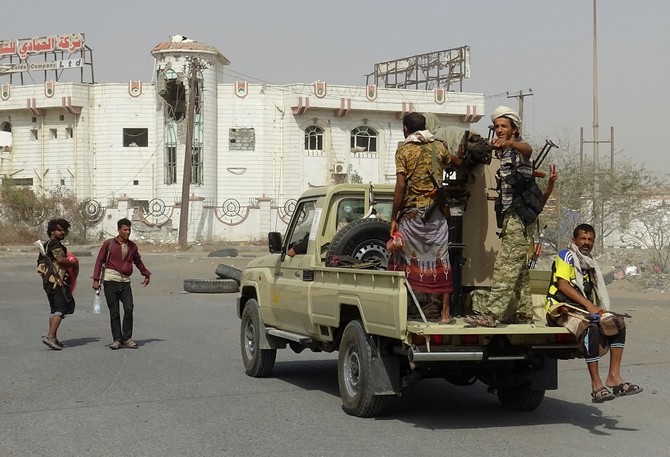Yemen’s flashpoint city of Hodeida was calm on Tuesday after the UN-brokered cease-fire started at midnight, pro-government sources and residents said.
“There has been complete calm since 03:00 am Yemen time (1200 GMT) in the city of Hodeida,” a military source loyal to the government told AFP on Tuesday.
The cease-fire agreement struck at the UN-sponsored peace talks in Sweden came into effect at midnight Monday.
Residents said that daily fighting would usually be fierce in the evening and at night, before coming to a standstill at dawn.
The two warring sides have however welcomed the truce in the strategic Red Sea province.
The Saudi-led coalition supporting Yemen’s government against Iran-backed Houthi militias “has no intention of violating the agreement ... unless the Houthis violate and dishonor it,” a coalition official said.
An agreement reached after talks in Sweden last week calls for the withdrawal of both sides’ forces from Hodeidah within 21 days and the deployment of international monitors. The Houthis are due to surrender control of the port by midnight on Dec. 31.
UN Secretary-General Antonio Guterres is expected to propose a surveillance team of up to to 40 observers, diplomats said.
Hodeidah residents reported sporadic fighting to the east and south of the city on Monday before the cease-fire took hold, and a government military official said a fire had broken out in a factory in the east of the city after airstrikes on Sunday night.
(With AFP)














